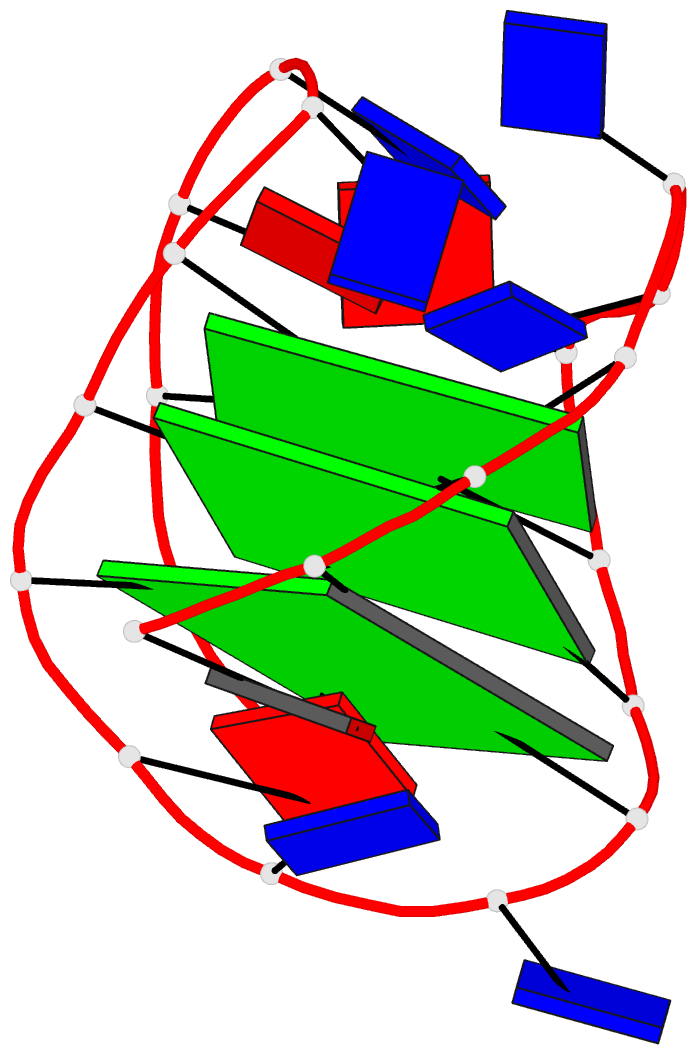Summary information and primary citation
- PDB-id
-
143d;
SNAP-derived features in text and
JSON formats
- Class
- DNA
- Method
- NMR
- Summary
- Solution structure of the human telomeric repeat
d(ag3[t2ag3]3) of the g-quadruplex
- Reference
-
Wang Y, Patel DJ (1993): "Solution
structure of the human telomeric repeat d[AG3(T2AG3)3]
G-tetraplex." Structure, 1,
263-282. doi: 10.1016/0969-2126(93)90015-9.
- Abstract
- Background: Repeats of Gn sequences are detected as
single strand overhangs at the ends of eukaryotic
chromosomes together with associated binding proteins. Such
telomere sequences have been implicated in the replication
and maintenance of chromosomal termini. They may also
mediate chromosomal organization and association during
meiosis and mitosis.
Results: We have determined the three-dimensional solution
structure of the human telomere sequence, d[AG3(T2AG3)3] in
Na(+)-containing solution using a combined NMR, distance
geometry and molecular dynamics approach (including
relaxation matrix refinement). The sequence, which contains
four AG3 repeats, folds intramolecularly into a G-tetraplex
stabilized by three stacked G-tetrads which are connected
by two lateral loops and a central diagonal loop. Of the
four grooves that are formed, one is wide, two are of
medium width and one is narrow. The alignment of adjacent
G-G-G segments in parallel generates the two grooves of
medium width whilst the antiparallel arrangement results in
one wide and one narrow groove. Three of the four adenines
stack on top of adjacent G-tetrads while the majority of
the thymines sample multiple conformations.
Conclusions: The availability of the d[AG3(T2AG3)3]
solution structure containing four AG3 human telomeric
repeats should permit the rational design of ligands that
recognize and bind with specificity and affinity to the
individual grooves of the G-tetraplex, as well as to either
end containing the diagonal and lateral loops. Such ligands
could modulate the equilibrium between folded G-tetraplex
structures and their unfolded extended counterparts.





